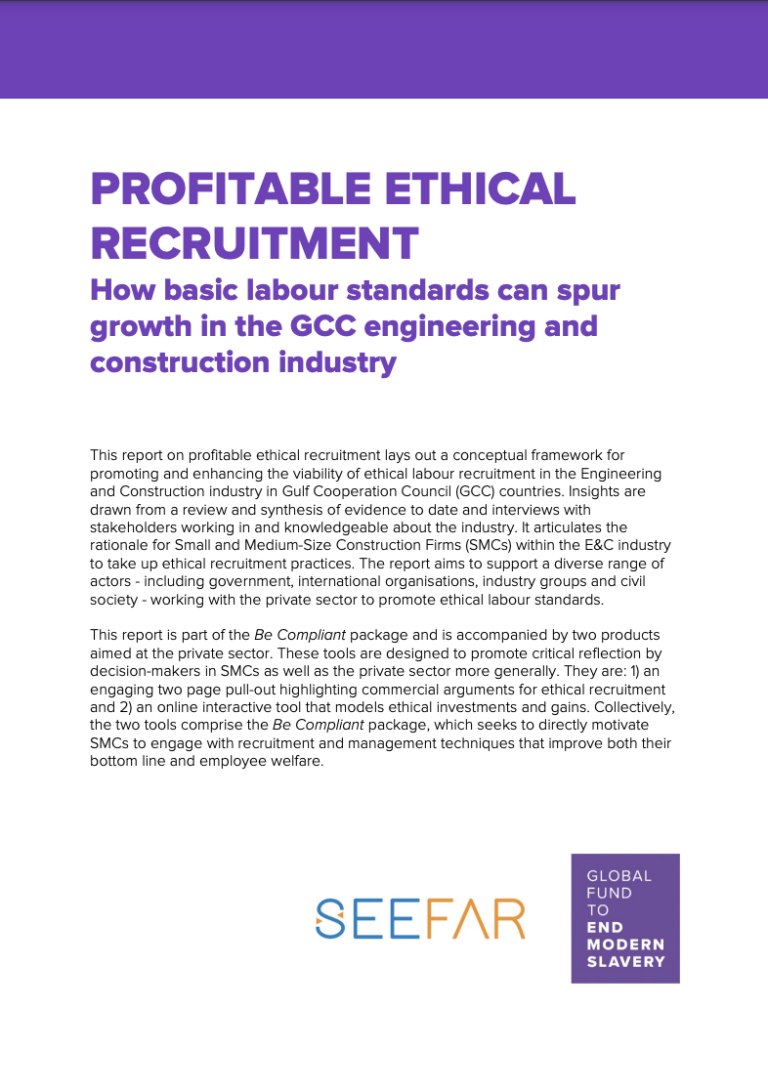This report on profitable ethical recruitment lays out a conceptual framework for promoting and enhancing the viability of ethical labour recruitment in the Engineering and Construction industry in Gulf Cooperation Council (GCC) countries. Insights are drawn from a review and synthesis of evidence to date and interviews with stakeholders working in and knowledgeable about the industry. It articulates the rationale for Small and Medium-Size Construction Firms (SMCs) within the E&C industry to take up ethical recruitment practices. The report aims to support a diverse range of actors – including government, international organisations, industry groups and civil society – working with the private sector to promote ethical labour standards.
This report is part of the Be Compliant package and is accompanied by two products aimed at the private sector. These tools are designed to promote critical reflection by decision-makers in SMCs as well as the private sector more generally. They are: 1) an engaging two page pull-out highlighting commercial arguments for ethical recruitment and 2) an online interactive tool that models ethical investments and gains. Collectively, the two tools comprise the Be Compliant package, which seeks to directly motivate SMCs to engage with recruitment and management techniques that improve both their bottom line and employee welfare.

